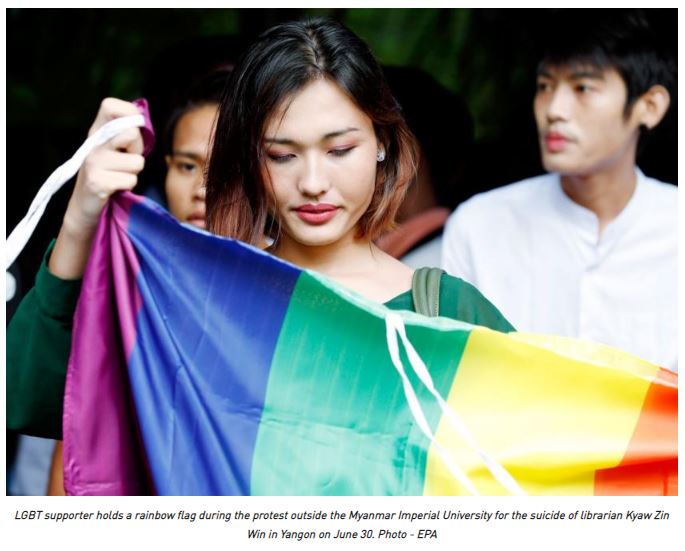Workplace harassment remains a problem in Myanmar
Myanmar businesses could lose up to 14 percent of labour productivity due to workplace harassment and 40pc of workers said they have been victims, according to the latest study by the International Finance Corporation (IFC).
In Myanmar, few companies have formed policies on dealing with bullying and sexual harassment at work, it stated.
The IFC, a member of the World Bank Group, and the UK’s DaNa Facility have launched on Wednesday the Myanmar-language of the study “Respectful Workplaces: Exploring the Costs of Bullying and Sexual Harassment to Businesses”.
The report aims to help employers tackle such issues in the work environment. The study was launched at the Myanmar Centre for Responsible Business and Colors Rainbow event, Working with Business to Promote LGBTI Equality in Myanmar.
“In workplaces, there are hierarchies and power structures that can be exploited. Leaders and managers also set an example, if they accept or condone [behaviour of harassment]; it sends a signal that bad behaviour is acceptable,” said Paul Joicey, director of programmes at the DaNa Facility.
The Myanmar-language report offers opportunities for employees, companies, and governmental departments to prevent and tackle these disrespectful practices.
Forty percent of the surveyed workers stated that they suffered from bullying, while 15pc reported experiencing sexual harassment.
The report discovered that the most common types of workplace bullying included being a target of gossip, shouted at or cursed at by a supervisor, and being left out from work-related activities.
The most common behaviour of workplace sexual harassment included being body shamed, hearing jokes of sexual nature, and inappropriate hugging. Some employees have voiced their concerns of such behaviours at workplace on social media.
The reported found that majority of the workers, who experienced bullying or sexual harassment, stayed at their jobs but were disengaged and their work productivity decreased below expected levels.
“Our experience shows that workplaces free from bullying and sexual harassment increase their productivity and profitability in the long term,” said Ellen Maynes, IFC’s gender lead for Myanmar.
On June 24, a 25-year-old LGBT librarian Kyaw Zin Win committed suicide by taking an overdose of sleeping pills as he was harassed and bullied by his work colleagues for his sexual orientation.
His suicide led to a public outcry and rights activists have called on the authority to improve anti-discrimination regulation in workplaces.
“It is not enough to be a CEO in Myanmar and say you support respectful workplaces. You must also have a policy, an effective grievance mechanism, and training in place,” commented Han Thein Lwin, CEO of Shwe Taung engineering and construction.
Source: https://www.mmtimes.com/news/workplace-harassment-remains-problem-myanmar.html


 English
English




